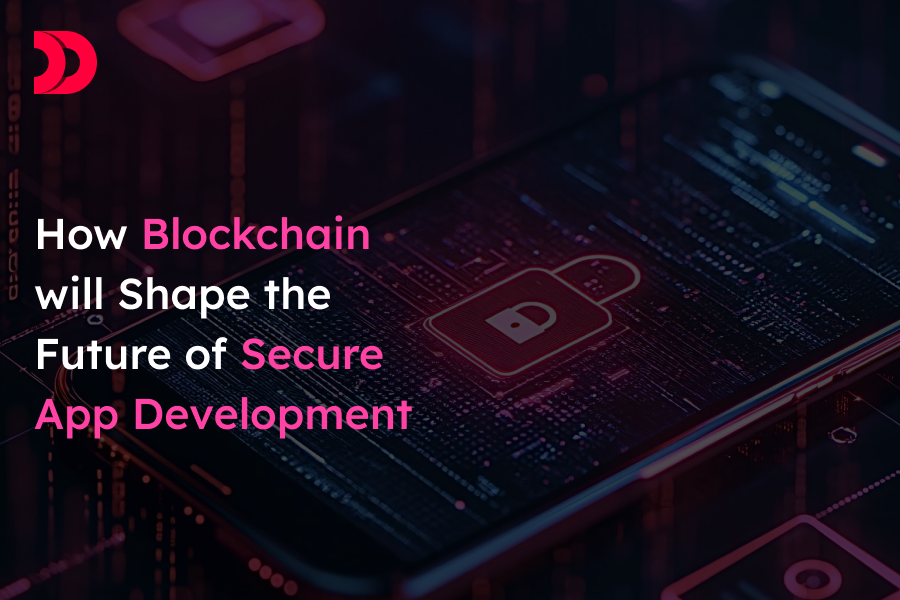
The blockchain is more than a trendy word in fintech. This layer of the app helps companies create reliable and trustworthy apps. Blockchain is a great tool for building secure apps, as it provides an unalterable audit track or decentralized identity. Blockchain’s decentralized approach is becoming increasingly valuable as digital threats continue their evolution. This is a great way to build trust in software right from the start, eliminate single failure points, and increase transparency. It leads to better security, increased compliance and more user confidence. This article discusses how important it is to choose the right partner, as well as their role and practical patterns.
Why product safety has become a necessity
A compromised server or keystore can expose millions of users. Blockchain flips this model by distributing trust, enabling cryptographic verifications, and creating records that are tamper evident. Blockchain’s distributed trust model, cryptographic verifications and tamper-proof records are all useful building blocks for app developers.
Blockchain enhances app security
- An immutable audit trailThe transactions recorded in a blockchain cannot be altered. This improves audits and makes forensic investigations simpler.
- Decentralized IdentityVerifiable credentials and Decentralized Identifiers decrease the reliance on central providers of identity. These technologies also increase credential security.
- Cryptographic security is built-inBlockchain utilizes public/private key encryption.. Apps can use cryptographic signatures to prove ownership and nonrepudiation.
- Smart contracts automate trustBusiness Logic is run on-chain in a verifiable way. This allows for trustless workflows and reduces manual reconciliation.
- Reduced single-point of failureThe risk associated with a single operator or server is minimized by using decentralized storage or consensus-based validation.
- Transparent permissionsPermissioned Ledgers make access control and audit trails explicit for enterprise use.
Secure blockchain apps: Practical patterns
- Off chain vs. On-chainStore sensitive data in off-chain storage, such as encrypted cloud storage (IPFS), or large payloads. Balance privacy with performance and cost.
- Anchoring HashHashing documents or records is a way to demonstrate integrity without revealing the data.
- ScalingReduce transaction costs while maintaining security assumptions appropriate to your application.
- Secure OraclesUse tested and tamper-resistant oracle services for reliable input of external data into smart contract
- Upgradability and governanceImplement upgrade patterns (proxies, governance-controlled modules) thoughtfully — upgrades introduce risk and need robust access controls plus audits.
- Custody & Key ManagementUse hardware based security modules, secure Enclaves or Multi-Party Computations (MPC) for recovery flow support and to protect the private key.
Why work with a mobile app security company?
A mobile application company like Devstree Australia, can help to ensure:
- Secure local keys storage and biometric unlocking (Secure Enclave Android Keystore)
- Secure transaction signing UX for preventing phishing and accidental approvals.
- Integrate wallet standards, such as Wallet Connect and mobile wallets, to prevent the embedding or unsecure private keys.
- We use code obfuscation and root/jailbreak detection to reduce reverse engineering.
- Encrypted communications and secure RPC endpoints for blockchain node interactions.
The role of specialized providers is vital
Many organisations combine the expertise of many experts.
- Blockchain App Development ServicesInclude strategy, architecture and smart contract development. Node setup services are also available.
- Blockchain Development Agency / Blockchain Development CompanyProvides end to end development, platform selection and other services. Full stack knowledge and expertise are required.
- Secure App Development AgencySecure coding, threat modeling, and security-first SDLC are the main focus of .
- Mobile App Security CompanySpecializes in mobile-specific security and secure key storage, as well as user-facing signature experiences. Devstree Australia offers all of these services in one location.
What to expect from a Blockchain project that puts security first
- Early Threat Modeling: Identify attackers before you code.
- Smart contracts audits and formal verification where appropriate.
- Tests both components in the chain and those that are not.
- Monitoring node health, and unusual transactions.
- Playbooks to help with incident response and compromise.
- Clear UX for security actions (e.g. transaction signing, recovery).
How do you choose the best blockchain application development company for Australia
You can locate a local blockchain developer in Australia such as Devstree Australia. They will demonstrate:
- Culture and security: audits certifications secure SDLC
- Cross-Stack Experience: Smart Contracts, Backend Integration, Mobile/Web Front-End.
- (Consult legal experts for details): (Consult legal experts for details).
- Case Studies and References: Successful projects in your industry.
- Support After launch: Monitoring, updates, and incident response capabilities.
Checklist to Hire a Blockchain Development Agency
- Does your company conduct independent smart contract audits?
- Can they create hybrid off-chain/on chain architectures
- Can they offer solutions for key management?
- Does the company have experience in mobile wallet integration, app hardening and mobile devices?
- What is your company’s policy on governance, upgrades and response to incidents?
Blockchain Security: Use Cases that are being used already today
- Provenance in the supply chain: tamper-evident records and traceable origin of goods
- DeFi: Transparent, verifiable transactions and automated settlement.
- Identity Digital: User controlled identity with verifiable credentials
- Healthcare Records: Hashing, access controls and immutable integrity tests for patient data without public release.
- Internet of Things: secure firmware provenance, decentralized device ID.
The blockchain is not a panacea
- Smart contracts may contain bugs Formal procedures and audits are essential
- By their very nature, public blockchains are transparent. Private data requires, however, careful storage off-chain as well as careful design.
- It’s important to manage keys. If a user loses their key, they can never be recovered unless you create a recovery system.
- Privacy restrictions and regulations (GDPR or laws in your country) may limit the content you can use.
- Cost-performance: Public chains can be expensive for frequent writers. Choose your architecture carefully.
Emerging Trends to Watch
- Zero-knowledge proofs (ZKPs), for privacy-preserving evidence on chains.
- Multiparty Computation (MPC), and HSMs, to ensure safer key custodianship and signature.
- Interoperability protocol enables apps to use multiple chains in an secure manner.
- Standardized DID ecosystems for stronger decentralized identity.
- Automatic security analysis of smart contracts improved developer tools
The conclusion to the article is:
Blockchains offer primitives like tamper-evidence, decentralized identity, and cryptographic safety. In order to capture these benefits, it’s important to put security first — with the right architecture, robust key management, audited smart contracts, and an optimized user experience. Select partners like Devstree Australia who are focused on security, audits, and real-world deployment experience.



